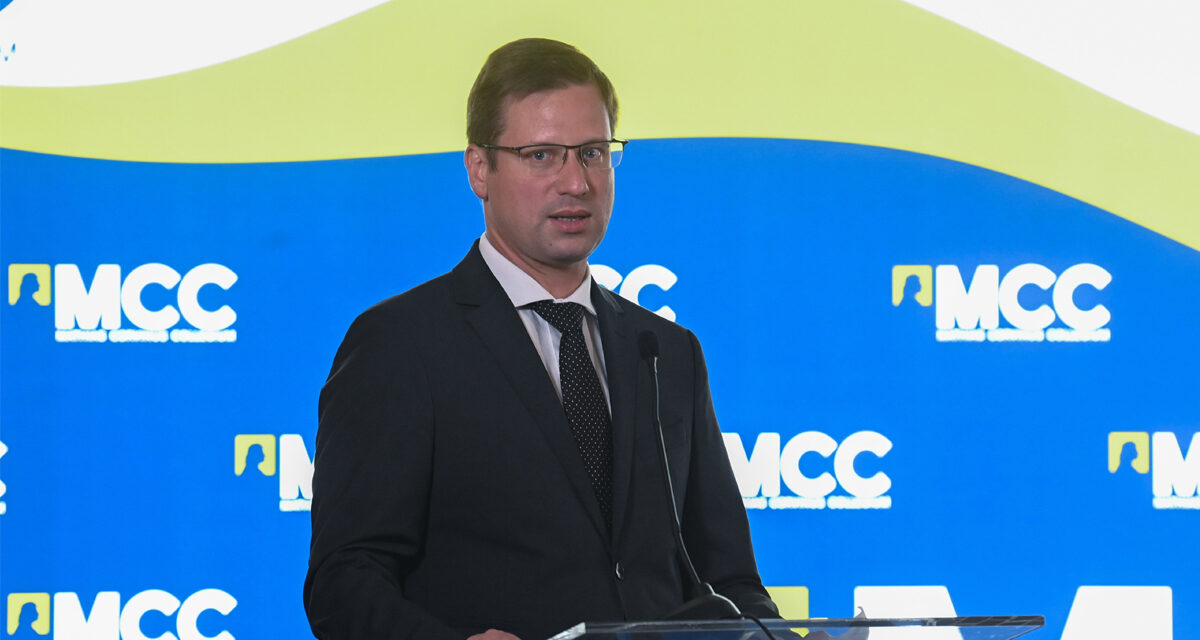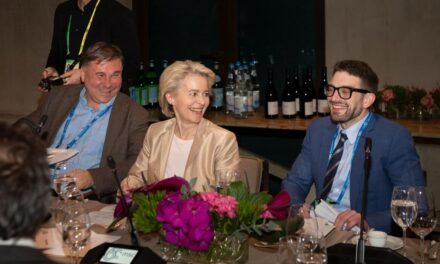The Ukrainian state, which we support, believes that our support should be thanked by making rules incompatible with all kinds of European human rights standards, said Gergely Gulyás at the MCC graduation ceremony.
The positive of the past decade is that
today no one disputes the correctness of thinking of a unified Hungarian nation
- declared the minister in charge of the Prime Minister's Office on Saturday in Budapest.
"This has become an indisputable thesis in Hungarian public life (...), that is why we must feel the cause of all parts of the nation beyond the border as our own," said Gergely Gulyás at the graduation ceremony of the public life programs of the Mathias Corvinus Collegium (MCC), at which the Transylvanian political school and the Transcarpathian leadership training school recently graduates received their diplomas.
The minister called the current period difficult for Hungarians. "Whichever part of the country we look at, we can name the main difficulties faced by Hungarians separated across the border," he emphasized.
Gergely Gulyás emphasized that
the Transcarpathian Hungarians are affected by all the horrors and sufferings of the war in Ukraine.
Meanwhile
"the Ukrainian state, which we support financially, morally and in humanitarian actions, believes that this support should be thanked by the fact that rules incompatible with all kinds of European human rights standards, which severely affect nationalities and trample on fundamental minority rights, are passed and adopted".
Hungary does not consider it the way to Europe if a state disregards the rights of nationalities, said the politician, then referring to the Hungarian Basic Law, he argued that it is worth belonging to a nationality.
"Hungary stands in solidarity with Transcarpathia, and also stands in solidarity with Ukraine, which is attacked by Russia, which violates international law"
- he stated, emphasizing that every Hungarian can always count on the motherland.
In Romania, the beneficial situation for the Hungarians, which was associated with the role of the RMDSZ in the government, has come to an end, so a more difficult period is coming for the Hungarian nationality there - continued Gergely Gulyás.
He called it the most important thing that there should be young people in Transcarpathia and Transylvania who consider the fate of their own community important, from the smallest community, from the family to the largest, including the nation.
Zoltán Szalai, the director general of the MCC, explained in his welcome that 19 people graduated from the Transylvanian political school and 15 from the Transcarpathian leadership training this year. Quoting István Széchenyi, he noted that entering the public sphere currently requires as many sacrifices as in the reform era,
because you have to stand up for Hungarian interests against a strong headwind.
Among other things, István Székely, the executive vice-president of the RMDSZ, said: at the last congress of his party, they did not modify their program because they are convinced that it will be the task of the next, younger generations, who should be given the opportunity to think about their own situation. "There is no new political generation without rethinking the common good," he emphasized.
Anna Bogya, the former Secretary of State of the Romanian Deputy Prime Minister's Cabinet, congratulated the young people taking on a public role for their courage, as distrust towards politicians is currently growing in Romanian public life. The RMDSZ politician hinted that his party left the Romanian government "with its head held high", but its goal did not change: to improve the life of the Hungarian community there. Addressing his words to the recent graduates, he emphasized:
"knowledge minimizes influence, and we need such leaders".
Andrea Bocskor, Member of the European Parliament from Fidesz, spoke, among other things, about the fact that the MCC leadership training program has become a determining factor among Transcarpathian youth, and that the graduates play an active and important role in the community, so they are the guarantee of the survival of Transcarpathian Hungarians.
(MTI)
Featured image: MTI / Zoltán Máthé













